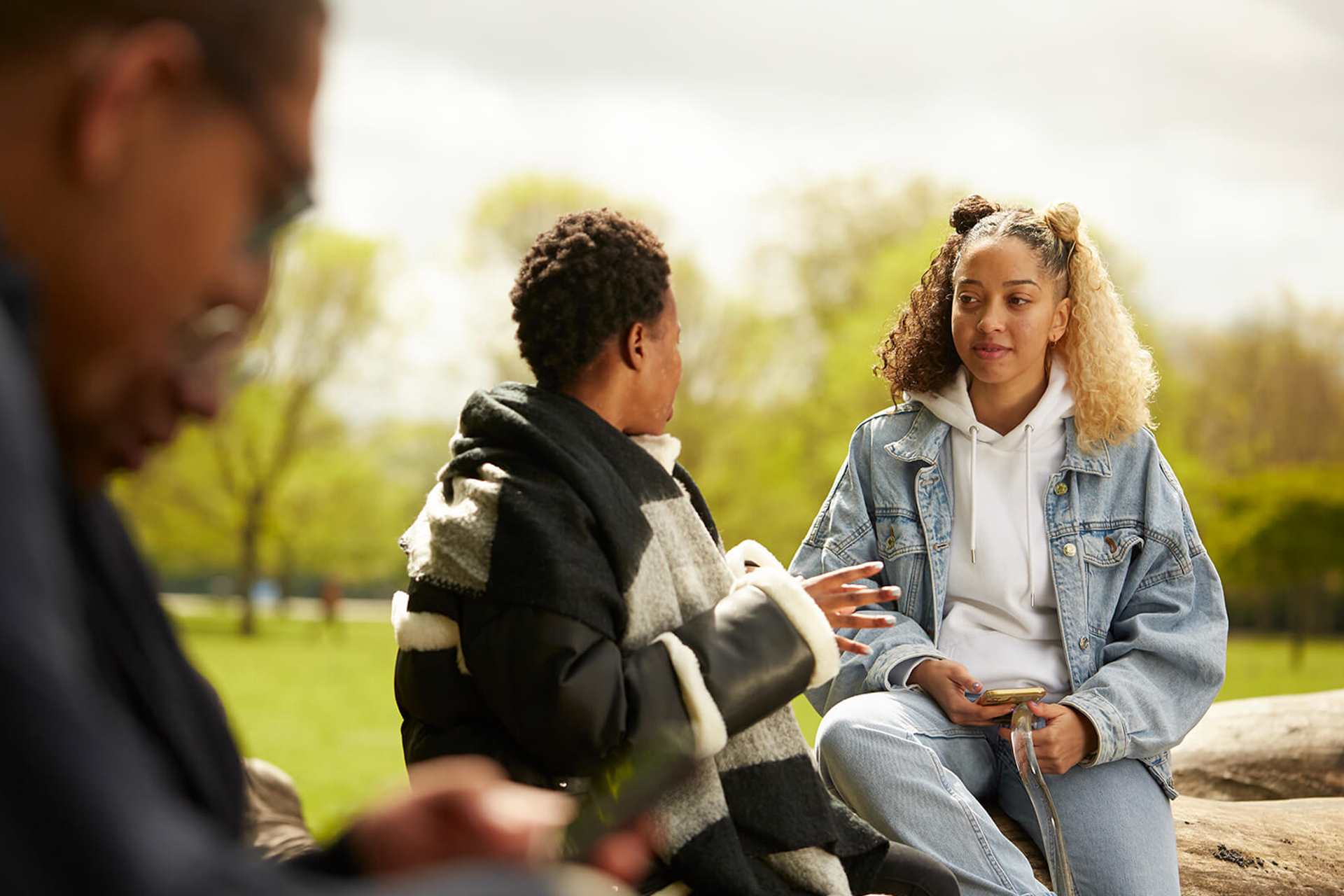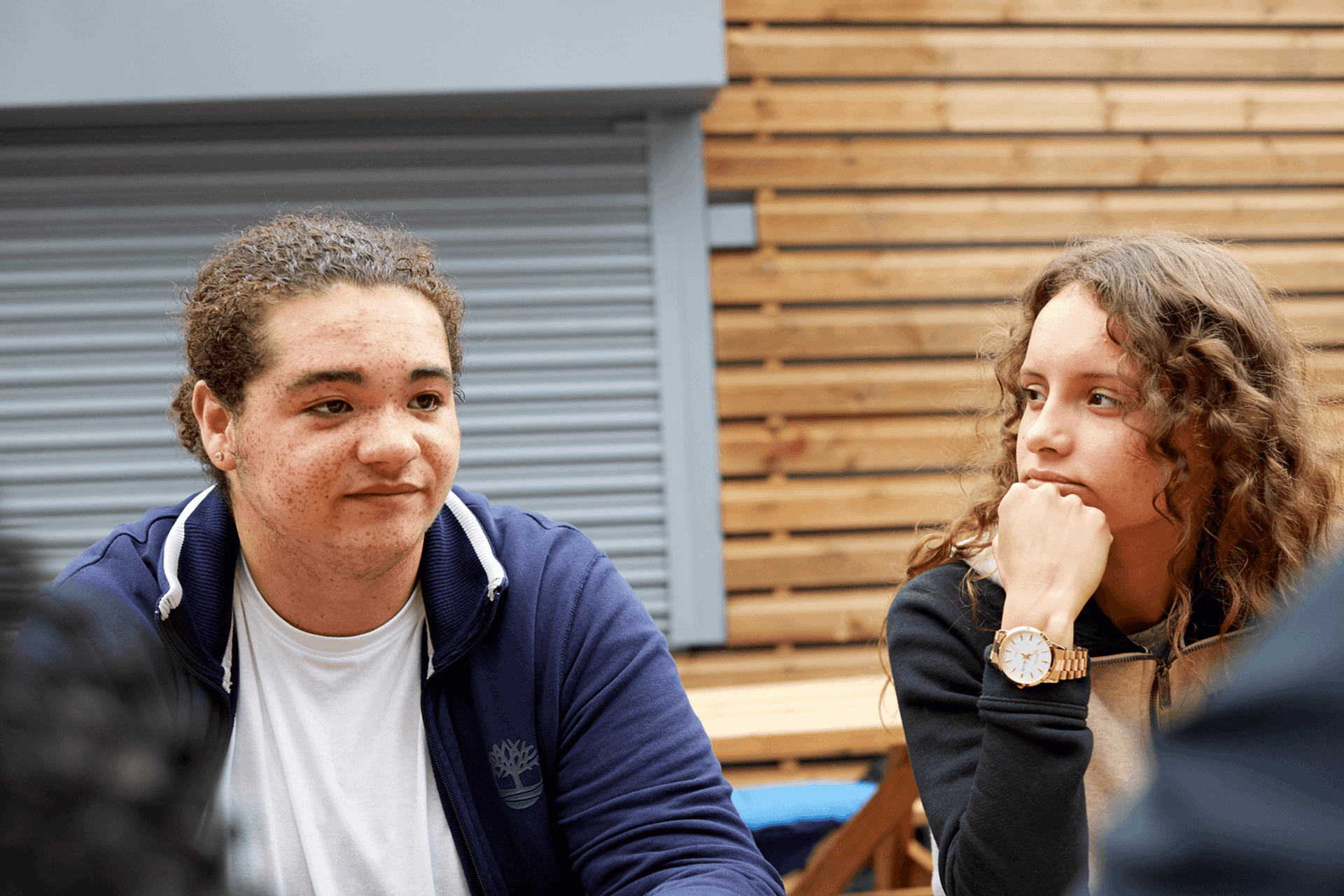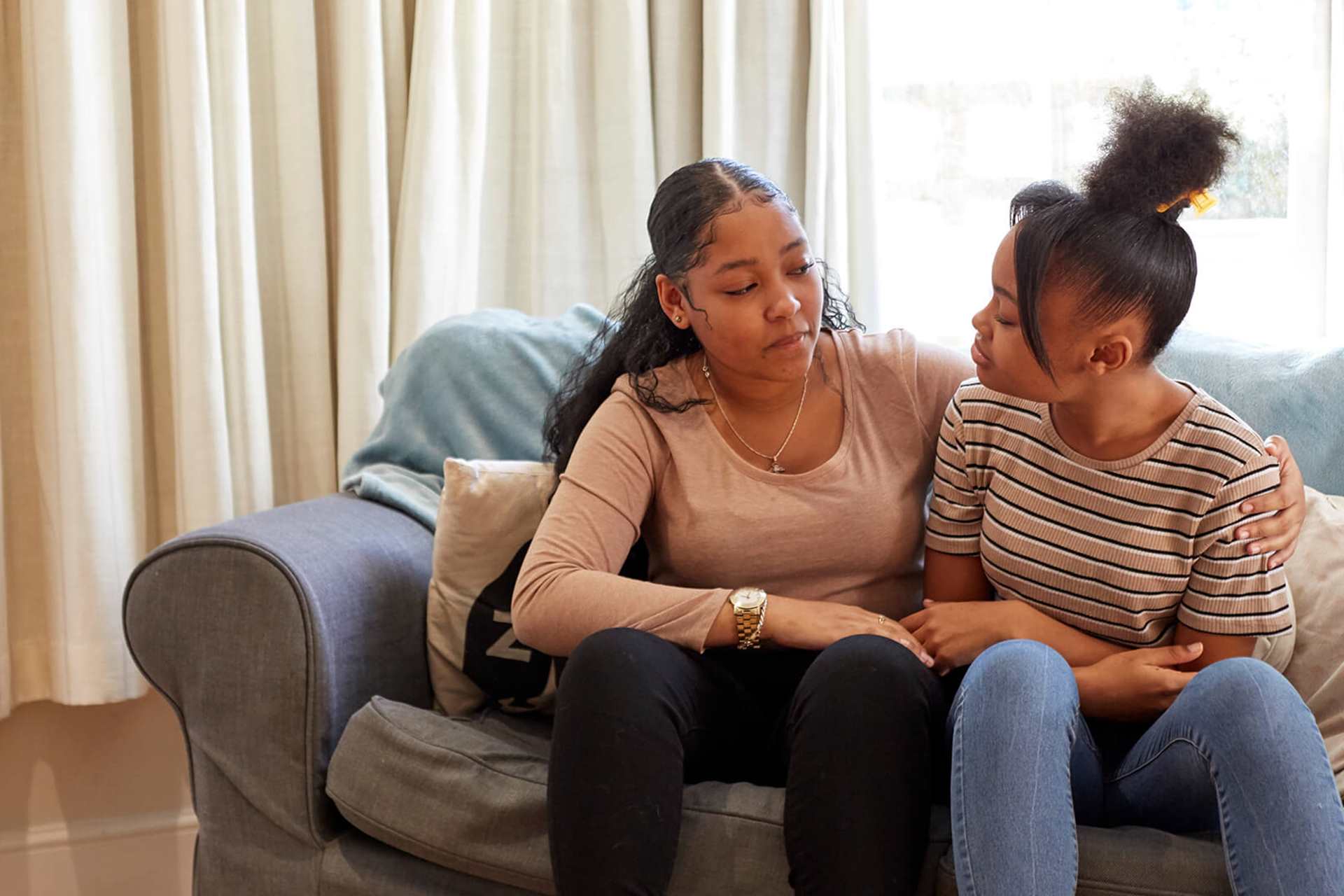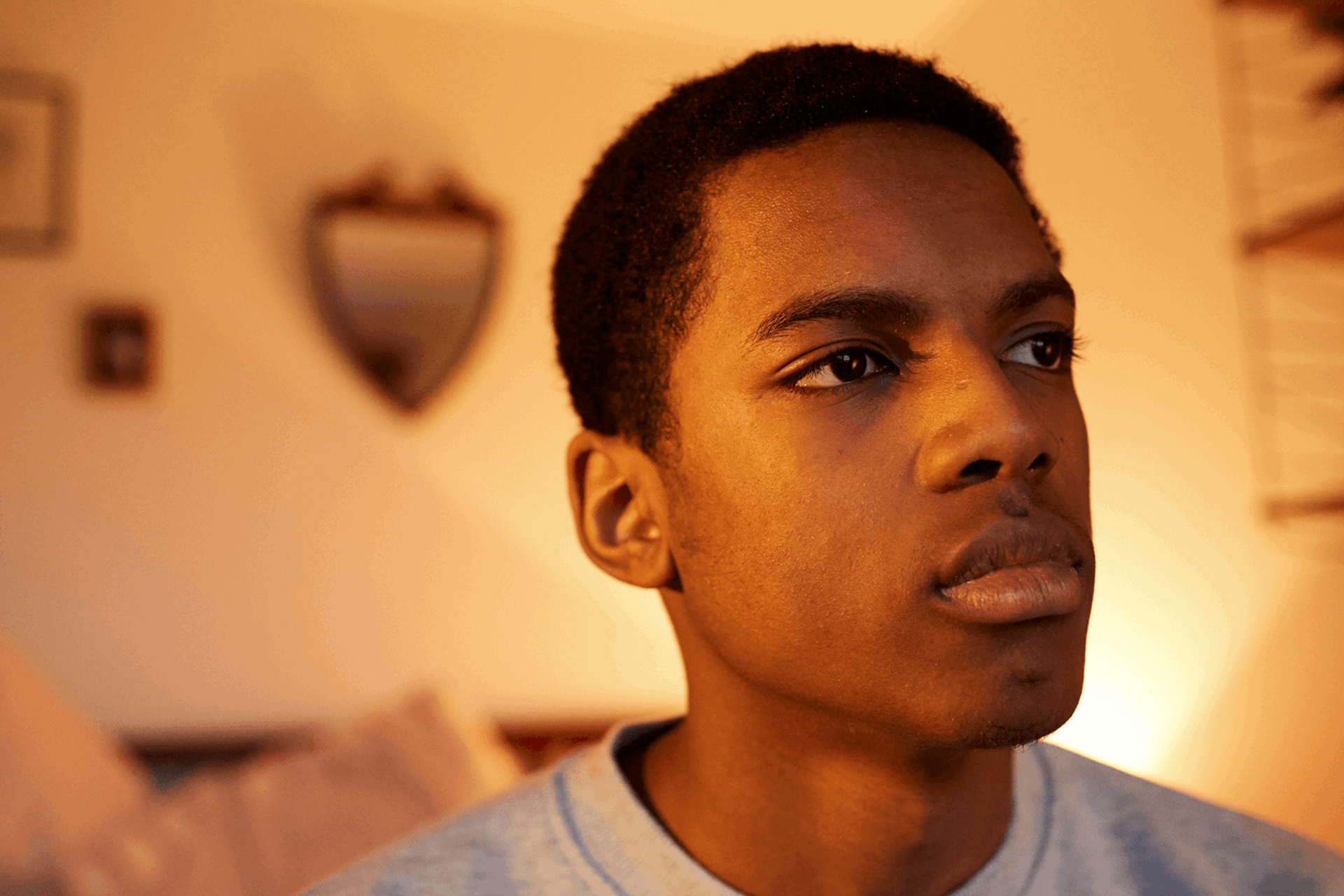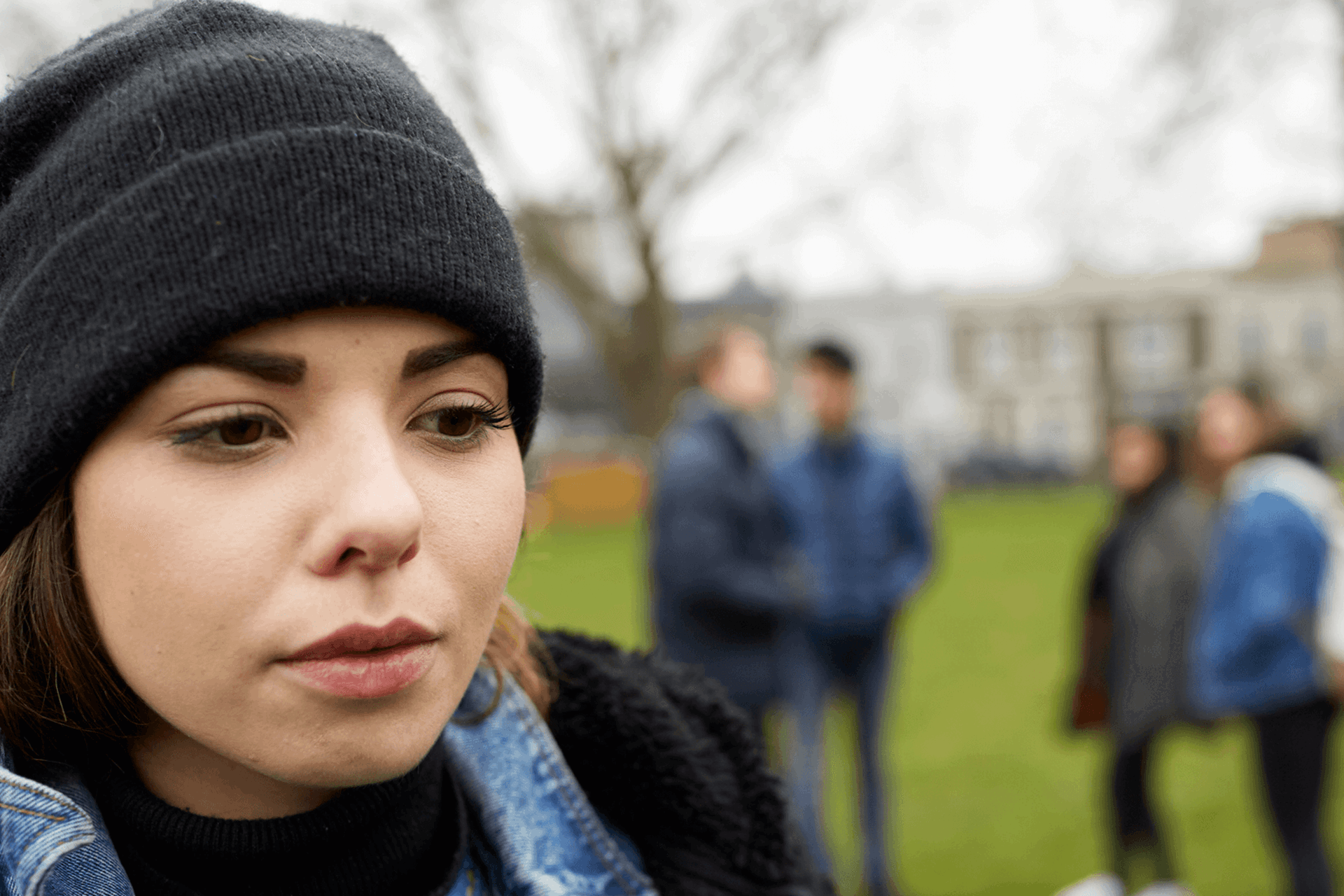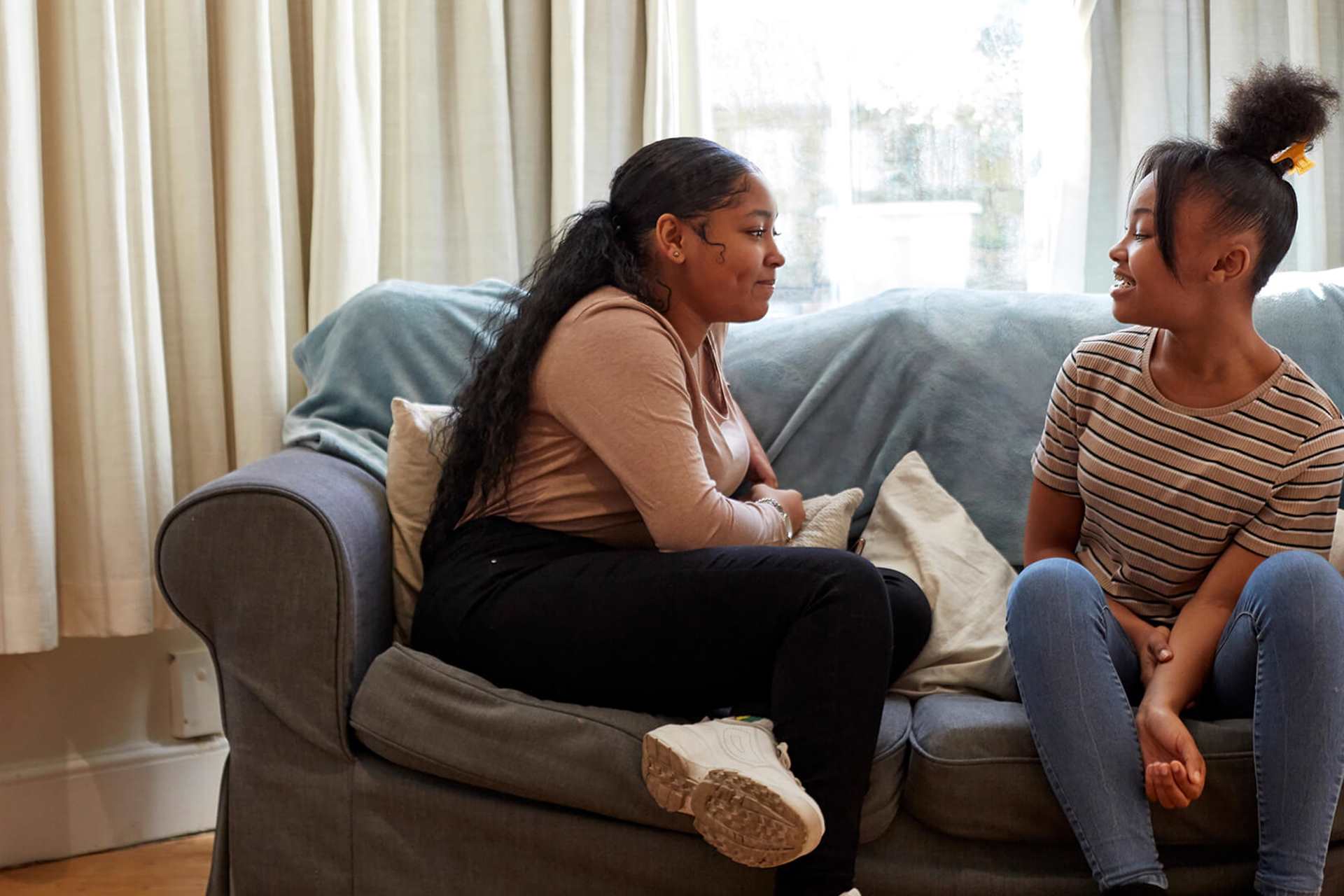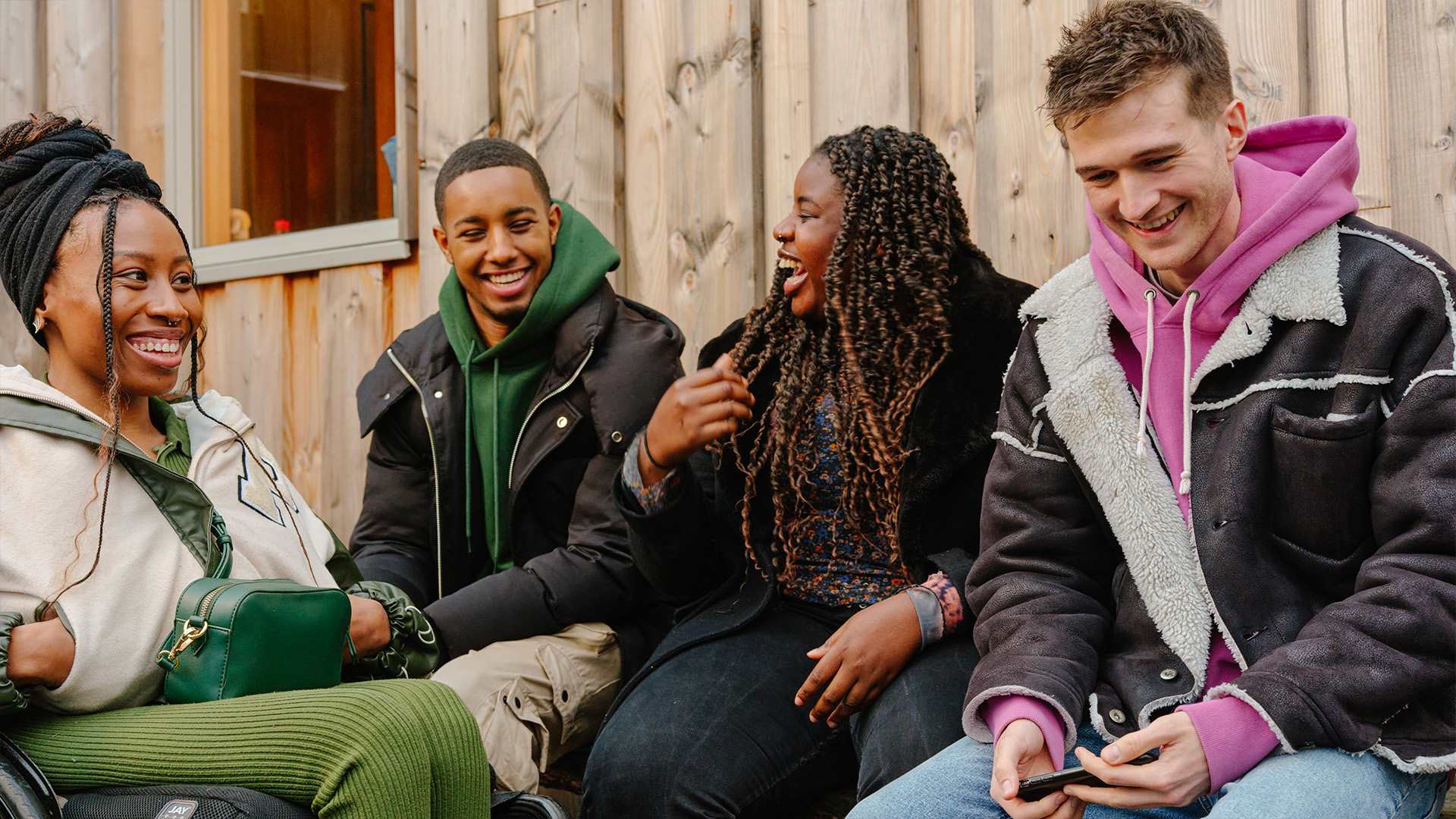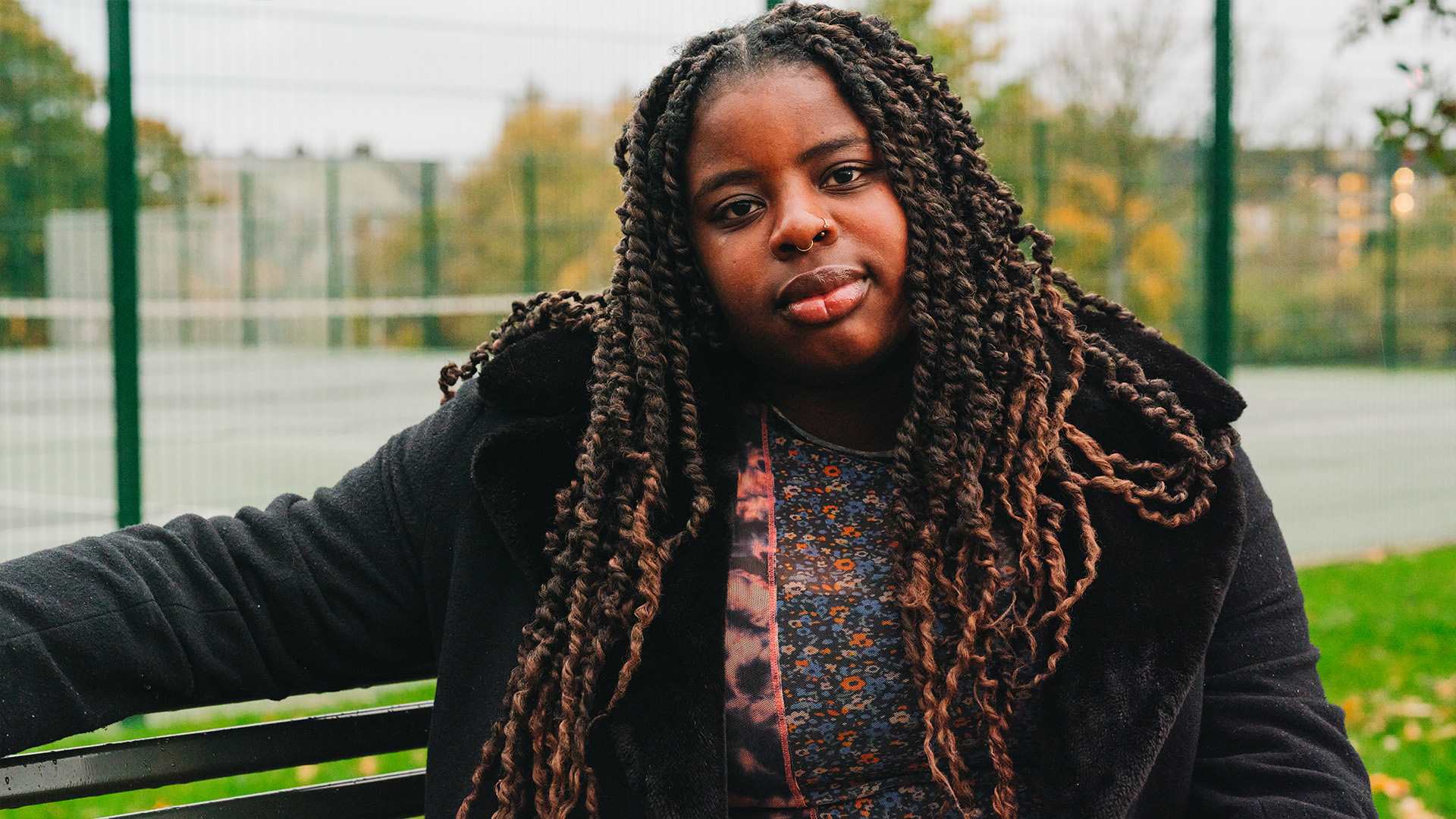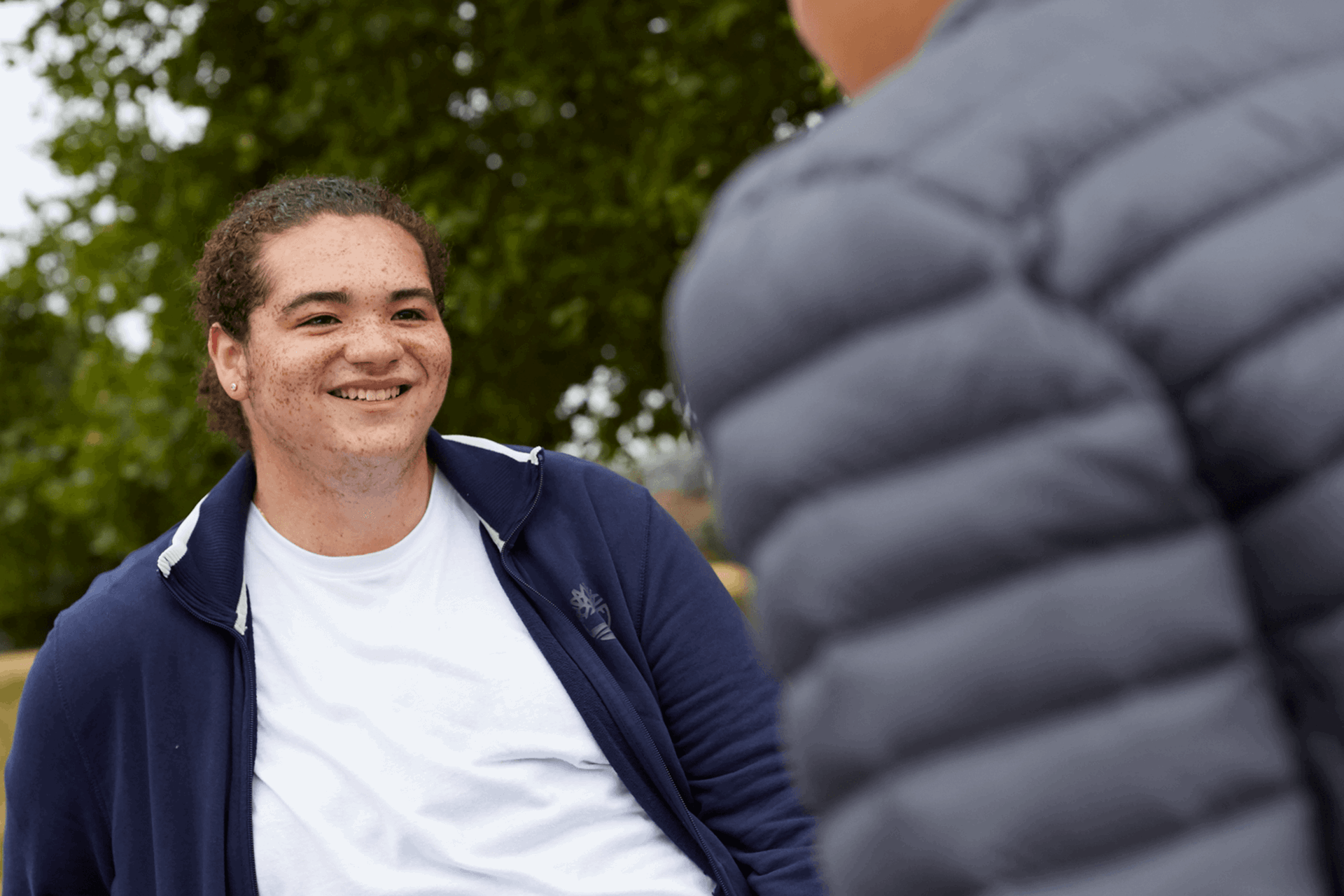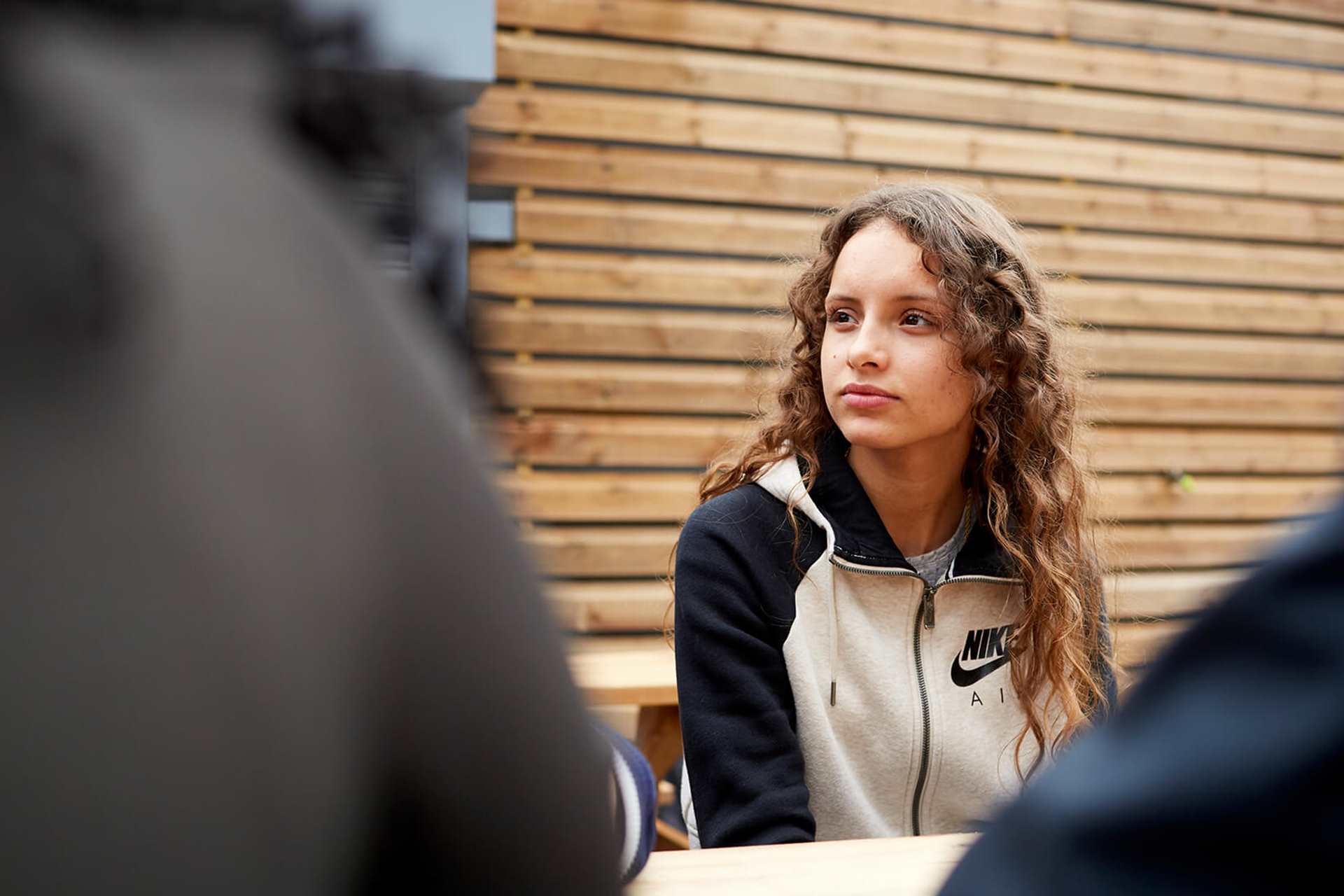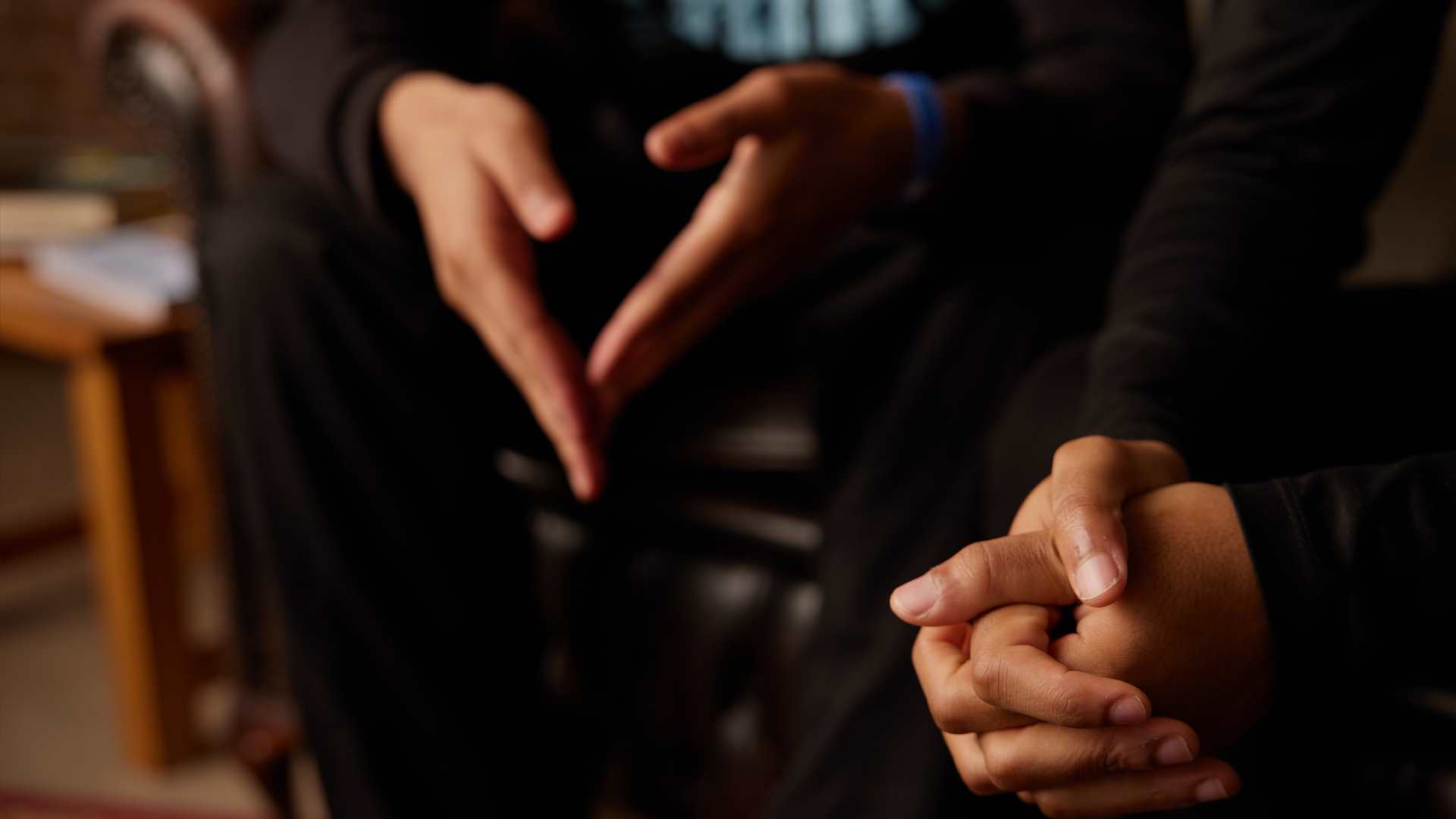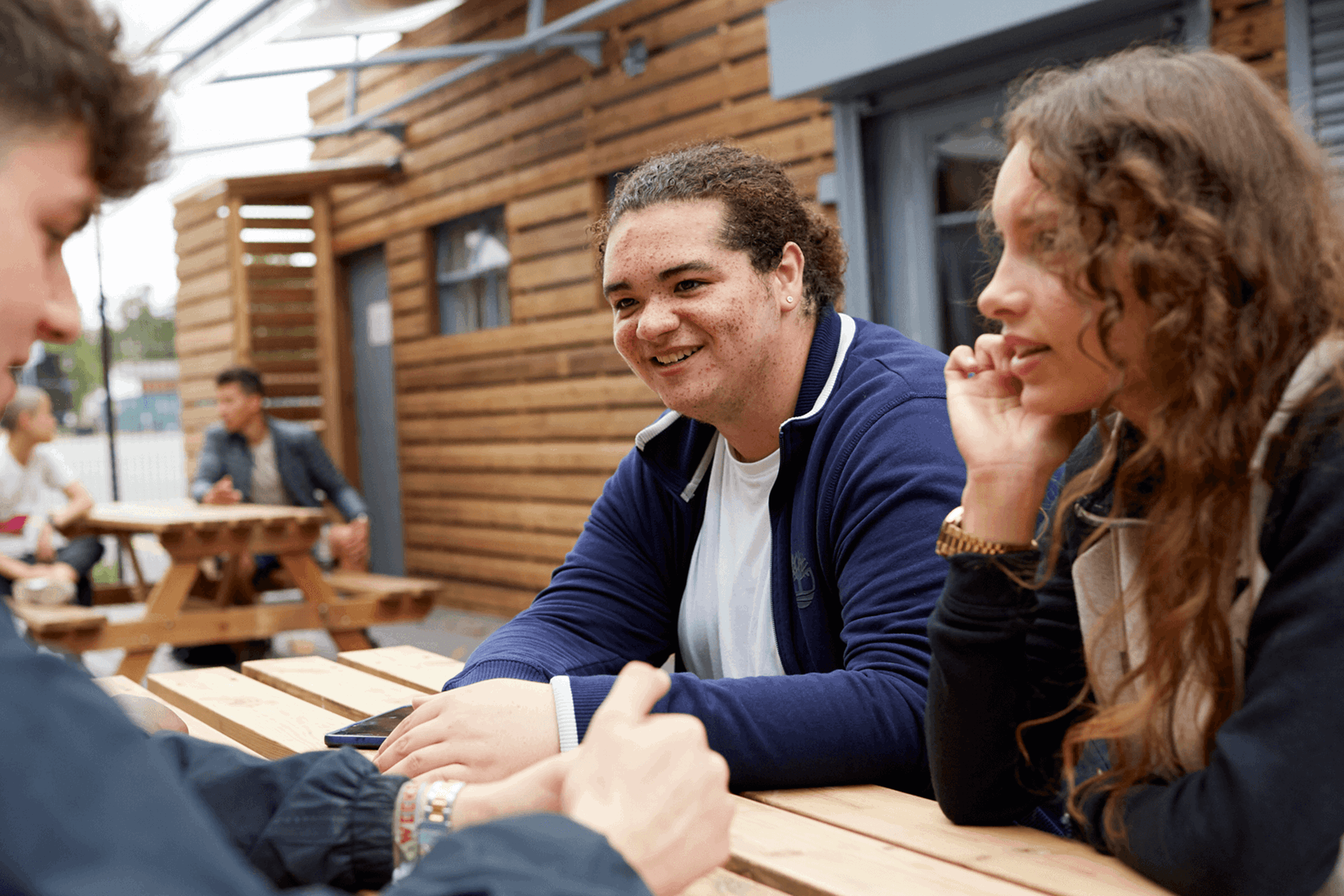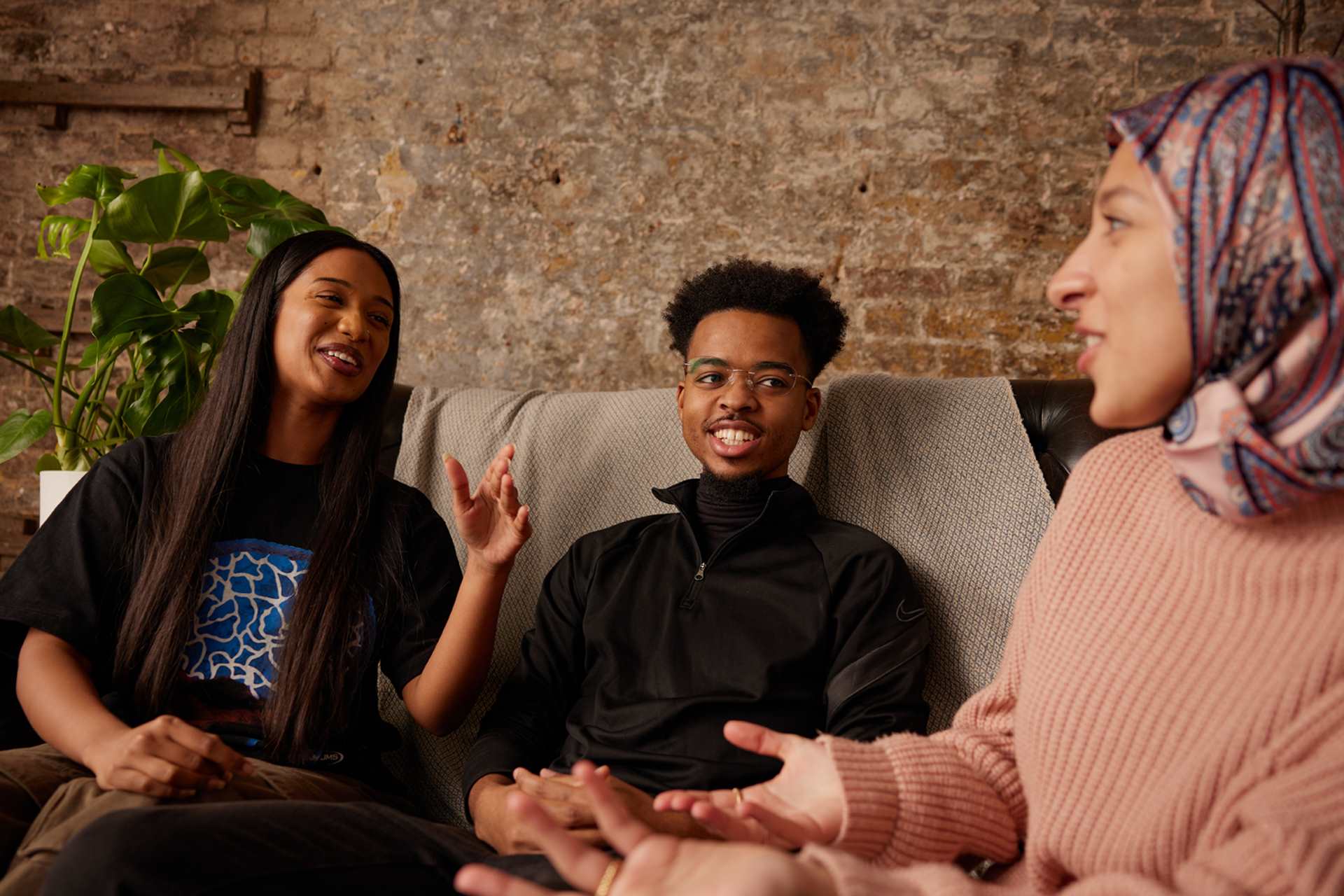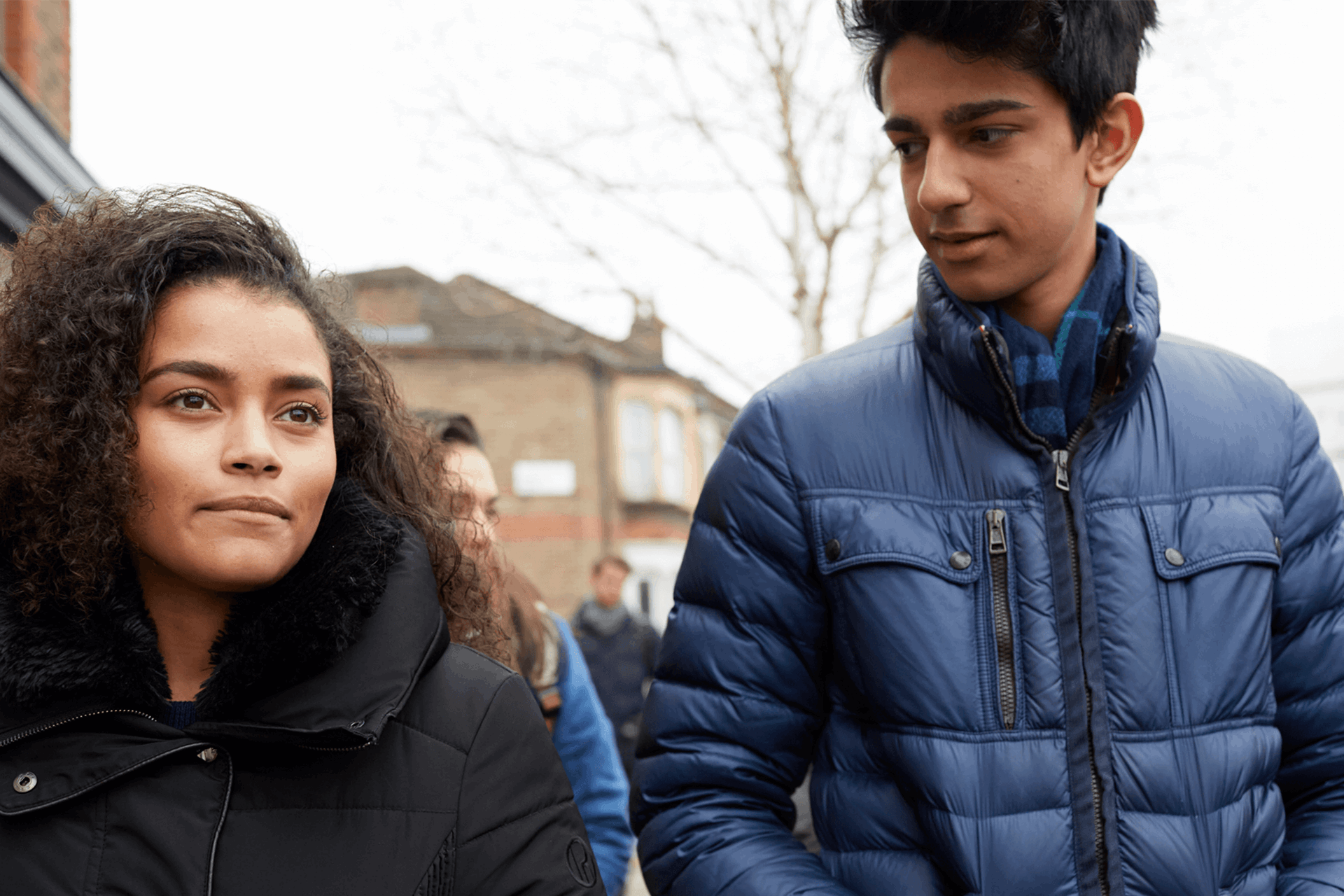What is anxiety?
Anxiety is when you feel scared, worried or panicky about something. It’s a normal, human feeling and your body’s natural response to stress or danger. Anyone can experience anxiety, regardless of age, gender, race, culture or faith.
We all feel anxious from time to time. But the feeling usually passes once we feel safe or solve the problem that was causing the anxiety.
As humans evolved, our brains developed an inbuilt alarm system. It warns us when something isn’t right and we need to keep ourselves safe. This alarm triggers what is known as the ‘fight or flight’ response – when your body prepares to either run away, fight, or freeze. Think about what happens in your body when you feel anxious. You might get a churning feeling in your stomach, feel dizzy or light-headed, or get hot and sweaty. These are all signs of the fight or flight response.
When our brains are in fight or flight mode, our thinking brain – the part that helps us think clearly, learn and solve problems – switches off. We evolved to have this response as it helped our ancestors react quickly to dangerous situations, like being chased by a predator. Even though we don’t face dangers like this anymore, we can still experience the fight or flight response when we feel anxious or overwhelmed.
This can make us feel like we’re in physical danger, but it’s important to remember that feeling this way doesn’t necessarily mean we are in danger.
When is anxiety a problem?
Anxiety becomes a problem when it stops you from doing the things you want or need to do in life. If this sounds like you, it might be time to get some help. A good place to start is by making an appointment with your GP. If your anxiety is having a major impact on your life, they might diagnose you with an anxiety disorder. But your anxiety doesn’t have to be severe for you to get help.
Young people have told us that their anxiety has sometimes been dismissed as perfectionism or the normal ups and downs of being a teenager. But if it’s impacting your life, you deserve help. If someone dismisses your experience, remember that it doesn’t mean what you’re feeling isn’t valid.
What causes anxiety?
All sorts of things can cause anxiety. There’s no ‘right’ or ‘wrong’ reason to feel anxious. Sometimes it has a clear trigger, but other times it can feel like it comes out of nowhere. Some people might feel it in specific situations. Others might feel it more generally. The cause of your anxiety can also change over time.
Below are some real stories from young people about what caused their anxiety.

Anxiety about the news and world events
Sometimes what we see in the news and everything that’s going on in the world can lead to feelings of anxiety. It’s normal to feel like this when you’re faced with difficult events.
If you need support coping with distressing events you're seeing in the news and around the world, our guide has tips that can help.
Symptoms of anxiety
Anxiety looks and feels different for everyone. We might notice anxiety in:
- stomach problems, such as pains, feeling sick or diarrhoea
- heart beating really fast
- fast, shallow breathing
- feeling light-headed, dizzy or faint
- grinding your teeth
- shaking or trembling
- sweating more than usual
- biting nails/skin picking
- nervous, on edge and unable to relax
- overwhelmed
- like something bad is going to happen
- out of control
- tired and grumpy
- needing reassurance or worrying you’ve upset someone
- self-conscious
- finding it difficult to concentrate
- eating more or less than usual
- needing the toilet more
- fidgeting or feeling tense
- sleep problems
- having panic attacks
Types of anxiety disorders
Anxiety disorders often come after a conversation with a GP. Below are some of the common ways it can show up and what these types of disorders are called:
If you find yourself feeling anxious most of the time, and about lots of different things, your doctor might diagnose you with GAD. Lots of other young people experience GAD. With a bit of help, lots of people with GAD are able to manage their anxiety.
Health anxiety is where you spend a lot of time worrying about feeling ill or getting ill. You might keep checking your body for signs of illness and spend a lot of time researching symptoms. Or you might feel like you need a lot of reassurance that you’re not unwell, even if your GP tells you that you’re healthy. This fear can affect your life in many ways and mean you avoid certain situations.
Hattie shares her experience of developing health anxiety during the Covid-19 pandemic.
It’s normal to experience nerves, worry or stress when you’re studying. Especially when you have exams or assignments coming up. But if your anxiety feels overwhelming and it’s getting in the way of your ability to study, it might be time to reach out for help.
A phobia is an overwhelming fear of a specific thing or situation. It can make day-to-day life really hard. You might avoid the object of your phobia altogether and worry a lot about coming into contact with it. Or you might experience anxiety symptoms even when you think about it. Other people might struggle to understand your fear, making it feel difficult to reach out, but help is available.
Agoraphobia is a type of phobia that can be experienced in lots of ways. You might be scared to leave a safe space, such as your home. Or you might be afraid of being left alone, or in a situation where you feel trapped and can’t get help.
If you don’t feel able to visit your GP, you can ask for a phone call instead. You could also ask someone you trust to go with you.
If you have a panic disorder, you regularly experience panic attacks. These are usually sudden and out of the blue, without a clear cause, and can be difficult to manage. You might also be constantly worried about if and when a panic attack will happen.
Our bloggers share their tips for before, during and after panic attacks.
It’s also common to experience anxiety alongside other mental health conditions, such as depression or PTSD. We have lots of information and advice on different mental health conditions to help you find the right support.
Treating anxiety disorders
If you’re struggling to manage your anxiety, help is available. The best place to start is by making an appointment to see your GP. Even though it might feel like they’re removed from what’s going on in your life, your GP is there to support you with practical options.
Below are some of the treatment options available. The treatment you get offered will depend on your age and what’s causing your anxiety . The important thing is to find what works best for you.
At first, your GP might offer you a self-help course. This can help you learn practical skills to cope with your anxiety. If you chose to do the course, book in another appointment with your GP to check in with how you’re doing.
The self-help course could be:
- a workbook or computer course to do in your own time
- a workbook or computer course with support from a therapist
- a group course with a therapist and other people who struggle with anxiety
If this doesn’t feel right for you, let your GP know. They can help you try other treatments.
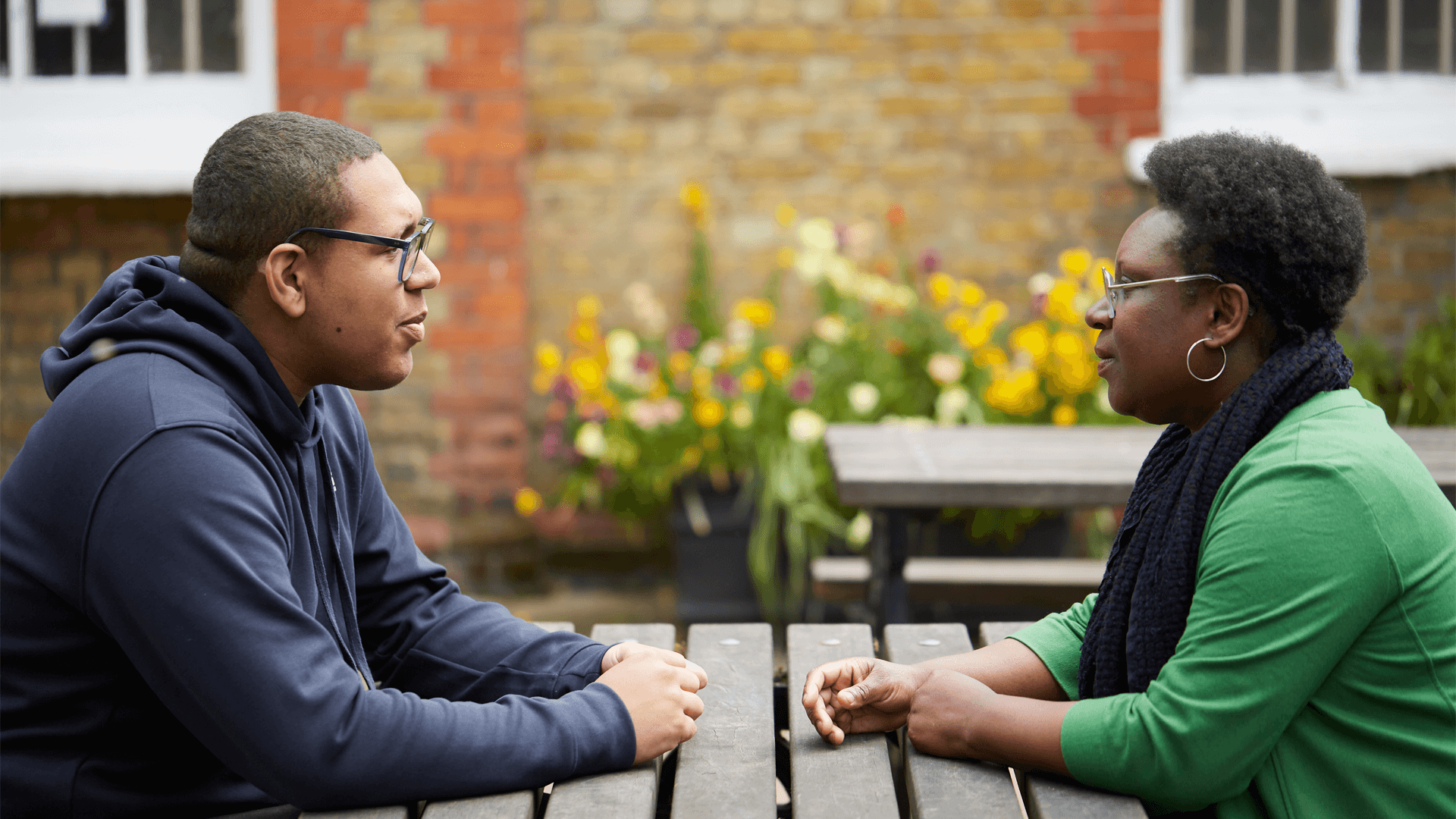
Talking therapy can help you get to the root of what is causing your anxiety. One of the most common types of talking therapy used to treat anxiety is cognitive behavioural therapy (CBT). With CBT, you work with a therapist who helps you understand your thoughts and feelings. They then help you explore ways to change how they affect you. You also learn practical techniques to help you relax and cope better in everyday life.
Have a look at our counselling and therapy guide to find out more about different types of talking therapies and what happens in a therapy session.
Applied relaxation can help you manage the physical symptoms of anxiety. The focus is learning how to relax your muscles in a particular way. You can then use this technique when you’re in situations that usually cause anxiety.
Medication can help you manage some of your symptoms. However, it‘s unlikely to solve the root cause of your anxiety. That’s why your doctor should suggest talking therapy alongside medication.
Some of the medications for anxiety you might be offered include:
- Antidepressants, usually selective serotonin reuptake inhibitors (SSRIs) like sertraline, escitalopram and paroxetine.
- Beta blockers like propranolol for anxiety that helps with physical symptoms.
- Benzodiazepines like diazepam.
To find out more about medications, how they work and to get information on side effects, have a look at our guide to medications.
If making appointments and going to the doctor causes you anxiety, let your GP know. They will be able to make arrangements to help. For example, they could arrange phone calls or home visits. You could take someone with you to appointments or ask someone to call the GP for you. It’s okay to tell your GP if you’re struggling and need to make adjustments – they are there to help, not judge.
Ways to look after yourself if you have anxiety
If anxiety is taking over your life, it’s important to get professional help. But there are also things you can do to look after yourself and feel better. Below are some coping techniques that you can try.
Your GP can tell you where to find local support groups. You can also look online at Anxiety UK for tools, tips and information on support networks. Finding others who get what you’re going through can feel like a weight has been lifted.
Opening up to someone you trust can really help. It could be a relative, friend, teacher, faith leader or someone else in your community. Sometimes we just need someone to listen and validate how we’re feeling.
It’s normal to worry about how the people in your life will react, or whether they’ll understand you. Especially if they have a different understanding of mental health. But we have lots of tips to make it easier in our guide to reaching out for help.
It’s helpful to have some grounding techniques you can use when you're feeling really anxious or having a panic attack. These are techniques that can help you to feel calmer, like breathing techniques to help you slow down.
If you're not sure where to start, have a look at these ideas from our bloggers:
Self-help techniques aren’t a replacement for getting help or a way for you to fix anxiety on your own. But they can help you manage your anxiety and take care of your mental health in little ways that make you feel more able to manage your anxiety. Take a look at some ideas from our Activists below.
Sometimes it’s as simple as stopping whatever you’re doing and going back to it later when you feel calmer. Take the time to slow down and do something that brings you peace. For example, spend time with friends or family, your pets, or go somewhere you feel safe.
There are lots of helpful apps such as Calm and Headspace to help you get started. Once you know the techniques, you might find it better to sit quietly and practise on your own.
This can help you get your feelings out by writing down worries or reflecting on times you felt anxious. It can also help you recognise signs or patterns in your anxiety, which can help you manage it better.
Figuring out if your worries are in your power can make them less overwhelming. If it’s a problem that you can solve, write down how you’re going to solve it, make a plan and set a date to do it. If you can’t, then the worry is out of your control and you can decide to let it go. It can also help to set aside ‘worry time’ when you allow yourself to go through what’s bothering you. Once the time is up, you can focus on other things.
This could be anything from drawing and painting to photography or baking. Keeping ourselves busy and making something can help distract us from our worries and feel present.
Whether it’s with your friends or on your own, games are a great way to relax and take time out of our daily lives. This could be sports, jigsaws, card games or video games. There are also lots of apps to help us relax and feel calmer, such as puzzles, classic arcade games or playing with patterns and colours.
Relax by listening to a playlist of songs or a podcast that you find soothing. Or rewatch your favourite TV show or movies that feels familiar to you.
Remember, it’s okay if you try activities and still feel anxious. These techniques might not make your anxiety completely go away, but they can make it a little easier.
I really wish I could tell 17-year-old Emily to just tell someone. Believe me, it feels so much better to get your worries out of your head and be honest about what you’re going through.
[If you find seeing family and friends difficult], try to remind yourself that there’s no danger with your family or friends, and that you are safe with them.
Write a letter to yourself explain how you feel and why. Be as open and truthful with yourself as you can be. A few days later, read it back imagining someone else wrote it to think how you would help them.
Sometimes all you need to do is stop and focus on your breathing. I have learned many techniques over my time in counselling, and finding one that works for you is important.
As stressful and anxiety-inducing as seeking help can be in itself, talking to someone and receiving support is the only way to overcome it.
I’ve found that imagining my anxious thoughts physically leaving my brain and floating off into the sky really helps me.
How to support a friend with anxiety
It can be hard to know how to help a friend or someone close to you struggling with anxiety. It’s normal to feel worried about saying or doing the wrong thing. But remember that it’s not your responsibility to fix anything. Sometimes just listening to how they’re feeling can be a really big help.
If a friend opens up to you about struggling with anxiety, here are some things you can do to support them.
Where to get help
If anxiety is taking over, you are not alone. Here are some services that can help you get through this.
-
Anxiety UK
Provides information, support and advice for anyone struggling with anxiety. Please note that this organisation offers paid-for services, including therapy and an advice line.
- Opening times:
- 10.30am-4.30pm, Monday-Friday
-
No Panic
Supports people struggling with panic attacks, phobias, obsessive compulsive disorder (OCD) and other anxiety-related issues - and provides support and information for their carers.
Call 01952 680835 for a recorded breathing exercise to help you through a panic attack (available 24/7).
- Opening times:
- 10am - 10pm, 365 days a year
-
Childline
If you’re under 19 you can confidentially call, chat online or email about any problem big or small.
Sign up for a free Childline locker (real name or email address not needed) to use their free 1-2-1 counsellor chat and email support service.
Can provide a BSL interpreter if you are deaf or hearing-impaired.
Hosts online message boards where you can share your experiences, have fun and get support from other young people in similar situations.
- Opening times:
- 24/7
-
Muslim Youth Helpline
Provides faith and culturally sensitive support for young Muslims.
Online chat service available during opening hours.
- Opening times:
- 4pm - 10pm, 365 days a year

This page was reviewed in June 2023.
It was co-created by young people with lived experience of anxiety.
We will next review the page in 2026.
YoungMinds is a proud member of PIF TICK – the UK's quality mark for trusted health information.
Whether you love the page or think something is missing, we appreciate your feedback. It all helps us to support more young people with their mental health.
Please be aware that this form isn’t a mental health support service. If you are in crisis right now and want to talk to someone urgently, find out who to contact on our urgent help page.


